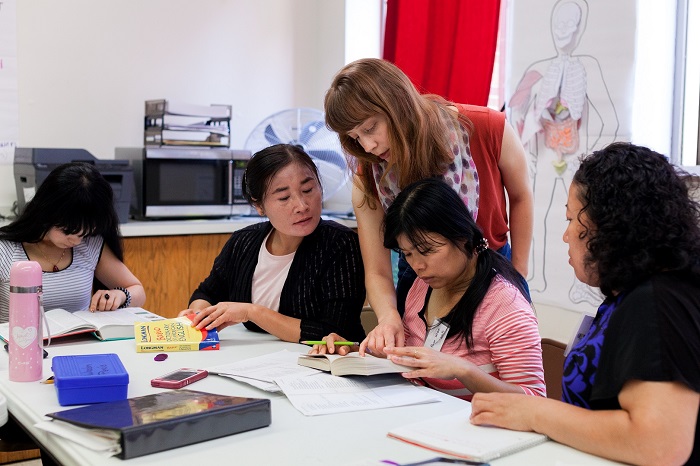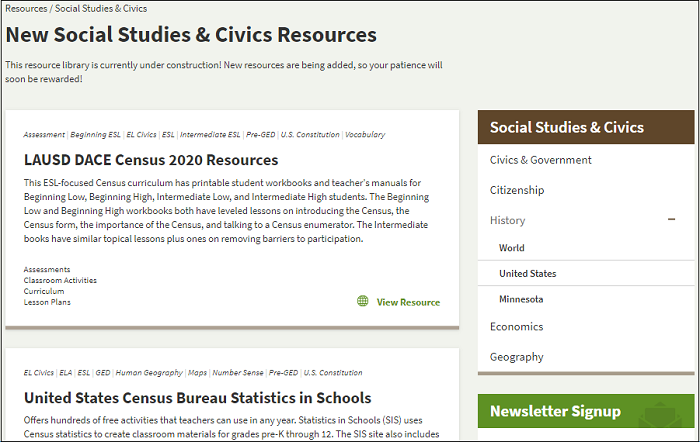Teaching Strategies
Recent Newsletter Articles

ABE Voices Across the Distance: Snapshot of the New Normal from Neighborhood House
MN ABE Connect is featuring a series of interviews with Minnesota ABE practitioners on how they are delivering instruction and support during this time. This week, we hear from three teachers working in the Neighborhood House ESL/GED program: Cara Berger, Kaija Bergen, and Eva Moline. Read More

ABE Voices Across the Distance: Snapshot of the New Normal from a Pre-GED / High-intermediate ESL Teacher
Minnesota schools are closed; how are MN ABE educators responding? MN ABE Connect is featuring a series of interviews with Minnesota ABE practitioners on how they are delivering instruction and support during this time. This week, we hear from Jessica Jones, a High Intermediate/Pre-GED teacher working at Open Door Learning Center in St. Paul. Read More

We Can Do Hard Things! Sharing Resources and Information in the Time of COVID-19
School may not be in session, but learning is! This is information you need right now. Keep reading to learn about a new central resource hub for all things related to Minnesota Adult Education during the current public health crisis. Read More

Teaching ACES/TIF in the Time of COVID
While the COVID-19 outbreak presents a huge number of challenges, it also gives us an unprecedented opportunity to help our students develop TIF skills as they try to understand everything that is going on. While many of us work from home over the next few weeks, here are a few of the ways that we can help our learners practice TIF skills. Read More

COVID-19: ABE Resource Considerations for Today and Beyond
COVID-19's effect on the ABE community is ever changing and will have a lasting impact. Know that there are plenty of resources and information to help teachers, students and communities to navigate this crisis today and beyond. Read More

Making Thinking Visible in Math and ELA Instruction: Part 4 – Chalk Talk
Reading, doing math, and learning are often silent, individual activities. They are internal, making it hard for us to know how students are tackling complex questions and making sense of course material. In the final article of this series, we take a look at the making students thinking visible through a silent "dialogue" called Chalk Talk. Read More

Making Thinking Visible in Math and ELA Instruction: Part 3 – It’s All about the Questions
Reading, doing math, and learning are often silent, individual activities. They are internal, making it hard for us to know how students are tackling complex questions and making sense of course material. In the third article of this series, we take a look at the power of questions in making student thinking visible in the classroom. Read More

Social Studies & Civics Online Resource Library Is Here!
Just the news you've been waiting for: ATLAS has launched a new Social Studies & Civics online resource library! In the new library, recommended social studies and civics lesson plans, classroom strategies, and related articles that are relevant for all levels of ESL/ABE will be highlighted and summarized. Check it out! Read More

Making Thinking Visible in Math and ELA Instruction: Part 2
Reading, doing math, and learning are often silent, individual activities. They are internal, making it hard for us to know how students are tackling complex questions and making sense of course material. In the second article of this series, we take a look at a strategy to make student thinking in the ELA and/or math classroom. Read More

Making Thinking Visible in Math and ELA Instruction: Part 1
Reading, doing math, and learning are often silent, individual activities. They are internal, making it hard for us to know how students are tackling complex questions and making sense of course material. This article is the first of two to explore how to make students' thinking visible for stronger learner-centered instruction. Read More